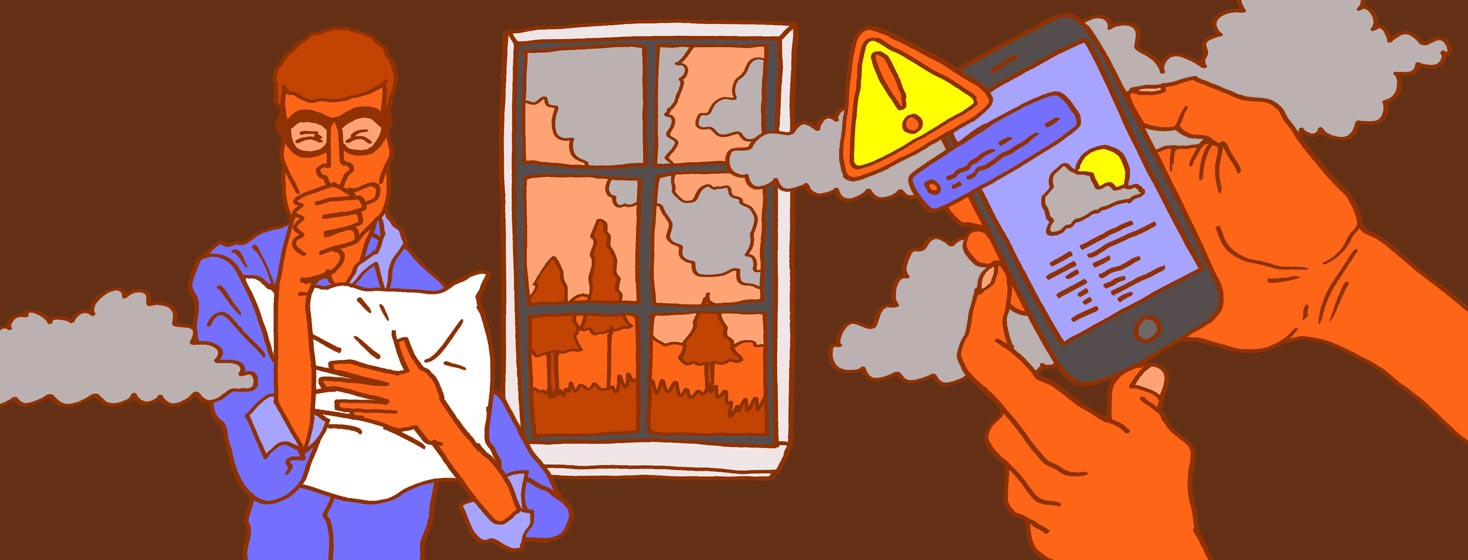Respiratory Warnings
Out of nowhere, a WeatherBug weather warning popped up. It said that the air quality for those with a respiratory illness is severe and people should stay indoors. Those aren’t the exact words, because silly me didn’t write them down or saved them to the phone.
I haven’t seen that before. I do get the allergy alerts and those for barometric pressure popping up on my phone and tablet. The Weatherbug app is on both. I actually have a few different weather apps. It’s amazing finding things that seem like little things, such as that warning. Things that can make a big difference!
Weather affects our health
No, we aren't strange or weather obsessed. We keep an eye out for weather as my husband travels periodically. Being on the Missouri River entices fishing which is a big thing. Keeping an eye on the weather where our kids are at is a good thing. Weather affects our health. It even makes for a good conversation. I also believe that knowing why there is shortness of breath or why my big toe hurts so bad helps me to understand why I'm going through this as others do as well.
It made sense
I showed this Weatherbug air quality message to my husband. He got the message the same time that I did. It was strange as it was the first time either of us had seen that. We were talking about the air quality outside. It seemed so nice to get something that can physically help us, for some emotionally too. Was this message true? After doing some thinking, my husband said there was smoke coming up from Nebraska, apparently, there were fires. We live in south-central South Dakota, so it made sense. This air quality reading was likely very good and accurate. I like this! It’s telling us what we can’t see.
A person not having COPD likely won’t experience or understand what it feels like to “wear poor lungs”. These weather observations can help us plan and even understand our day. We often claim that barometric pressure affects us. The shortness of breath, pain, fatigue, and more are giveaways as well.
Other irritants
Other related things that we likely won’t find warnings for can physically affect us. Given that big fires affect us and create warnings, it’s only understandable that these related smaller things can also affect our lungs:
- Fire pits and bonfires
- Fireworks
- Burn piles
- Smoke from the neighboring communities
- Scented items spill in stores or restrooms
The ABC's
It’s so important that we remain alert to our environment, inside and out. When we go out, whether outside or by vehicle, it’s important to be prepared. Our body can also give respiratory warnings. Always think of the ABC's.
- Airway:Be sure that you are able to move air. I think of mucus. Sometimes mucus can be so thick that it’s hard to cough up and cough out. This blockage can cause a person to feel they are choking, and they possibly are. It’s important to be able to cough that mucus plug out. Be sure to drink water, it can help to thin the mucus. Talk to your doctor if it persists.
- Breathing: Breathing may sound easy to those that do not have a lung disease or struggle to breathe. Oxygen levels below 89% will likely qualify a person for oxygen. Your doctor can give you a pulmonary function test or other tests to see if you qualify. There is also testing that they can do when you are sleeping to see if you qualify for night oxygen.
- Circulation: Do you have enough oxygen circulating throughout your body? With poor circulation, you might see a bluish tint by lips, fingernails, toenails, or even eyes. If you notice that you are not getting proper circulation, see your doctor. Your organs depend on this. Be sure that if you are put on oxygen that you use it as prescribed.
Coughing techniques
How does a person cough out that mucus out? It can be so hard to do. Coughing should be easy. For those of us with COPD, it can be difficult and even painful. It’s important to protect the ribs, abdomen, and muscles on the sides. You may know of other places of pain. You can put a pillow across your abdomen, ribs and the areas you feel need protecting. That will help prevent pulling stomach muscles, and possibly broken ribs.
What is controlled coughing?
Using your nebulizer before coughing, can help to bring some of your mucus up. To prepare for your coughing: Sit on a chair, leaning forward. I actually like to put my elbows on a table or elbows on the arms of my chair to help me stretch out. At the same time, I protect myself with the pillow. I feel more secure this way, plus it feels like there is more leverage.
What is Huff coughing?
Breathe in slowly, 1 – 2 – 3. For Huff coughing, think of the 2-3 coughs as short, sharp barks, or even think of coughing the word huff out quickly. This should help to loosen the mucus so that it can be coughed up (expressed). Do this as long as necessary to get that mucus plug out. Once that is done, you can normally cough up more mucus.1
Repeat your inhalation and coughs as needed. Rest and relax between coughs. Keep a tissue or handkerchief handy for something to cough into. Again, be sure to do the coughing technique after using your nebulizer. Your mucus hopefully thins when you do a treatment, and coughing should help to bring that up.1
I hope that you are all doing well. In all things, remember your ABC’s.

Join the conversation